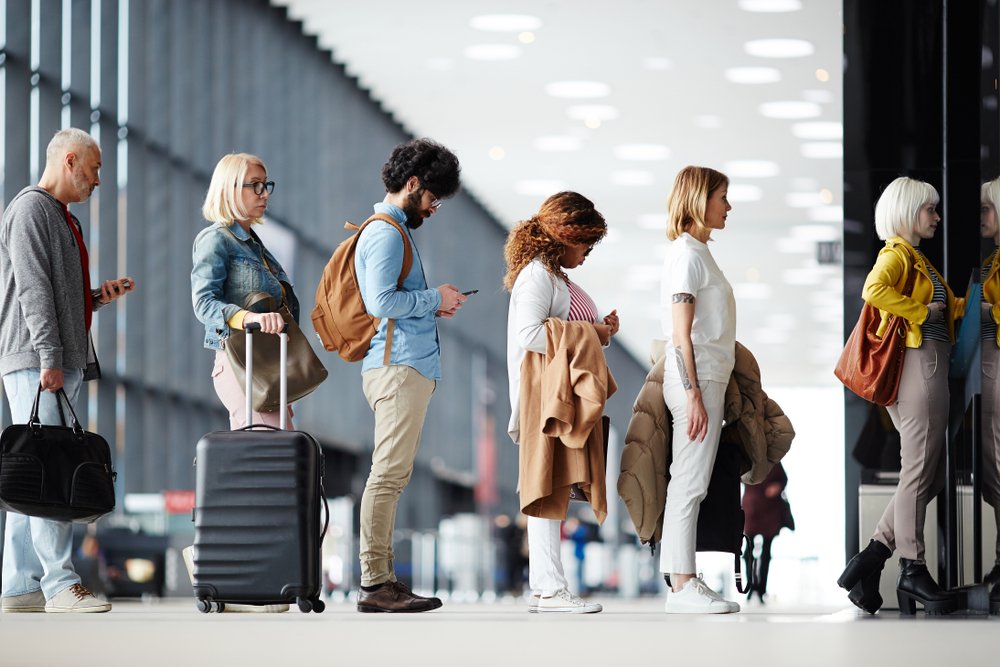Preparing for a recent trip from the United States to my home base in Singapore, I had to document and organize records of my COVID vaccination status and required test results. I spent hours preparing numerous forms stored in separate websites or apps. I also struggled to verify if my pre-departure PCR test at San Francisco airport, issued on a piece of paper that could have easily gotten lost, met the stringent entry requirements of the Singapore government. It wasn’t exactly a nightmare, but it certainly wasn’t fun. It would have been easier if I had been able to use a universal globally-accepted digital Covid “passport.”
As the world emerged from pandemic lockdowns this year, such passports have gained attention as a potential tool for safely reopening economies and borders. The apps, which allow individuals to store their test results or vaccine records on a phone and display them to third parties, showed early promise and sparked buoyant enthusiasm in many tech circles.

But the story of COVID passports is one of only fitful progress.
Early in the pandemic, many of the most high-profile COVID passport projects were designed to help facilitate international travel. Within months of the first major lockdowns, a vibrant and global community of technologists came together to build transnational systems to allow test results and vaccine records to be recognized across borders, enabling a more seamless road to international travel recovery.
NGOs and private sector players soon rose to the challenge. Multilateral partnerships were forged; international forums were held; and pilot programs were launched along key international air travel routes. But to date, the vision of a global system with common standards for the sharing, storage, and verification of health data has not materialized. As my experience underscored, international travel in the COVID era remains cumbersome.
Given the thorny technological, political, and operational challenges to making international COVID passport apps work, one can be forgiven for questioning their feasibility. But with pressure mounting on governments around the world to reopen economies, we are seeing many COVID passport solutions focused on national-level needs. This is certainly true in the Asia Pacific region, where “zero COVID” strategies and the risk-averse pandemic management policies of many governments have led to sustained lockdowns and created an urgent need for safe reopening.

Some countries have done well developing and deploying COVID passports. In Singapore, for example, proof of vaccination has been strictly required for entry to restaurants and other venues for many months. Most Singaporeans can easily demonstrate their vaccine status with a digital health pass embedded in TraceTogether, the national contact tracing app. Having lived here through most of the pandemic, I can personally attest that rollout of the system was practically seamless—vaccine records were automatically imported directly into the app, which was intuitive to use and taken up by most of the population.
Singapore’s success with its domestic COVID passport solution can be attributed, in part, to its digitally-savvy and technocratic governance. The country is also small, making it relatively easy to operate a centrally administered database of vaccine results and test records that can easily be queried by COVID apps. This is one of the reasons that a vibrant ecosystem of COVID passport providers emerged quickly in the country. Few other countries have these same ingredients for success.
Singapore is also a place where strict regulations are the norm, people tend to follow the rules, and trust in government services is relatively high. In many other countries, however, public apathy or antipathy towards COVID passports has been a key obstacle to uptake of COVID passports. In the United States, for example, the MIT Technology Review found in August that seven states had rolled out vaccine certification apps, while 22 states have banned such systems to some degree. On my recent trip to the United States, it was downright trippy to visit cities like Tucson, Arizona where people could barely be convinced to wear masks in crowded indoor settings, much less download an app. Vaccine mandates were nonexistent anyway.
But despite social and political resistance, COVID passport apps are becoming increasingly common around the world. Compared to those designed for international travel, these local systems require less technology to implement and don’t face the interoperability challenges of global solutions. National-level systems are also less likely to be beset by fraud and misuse, since it is easier to query and verify test results or vaccine status within a single nation’s borders than across disparate systems for vaccine approval and lab accreditation.
Still, some countries have seen COVID management hampered by stop-and-go implementation of domestic solutions. Denmark was one of the first to introduce a COVID passport, in April. After 80% of its citizens had been fully vaccinated, it phased out the pass in September, but after a subsequent surge in cases, health experts called for its return. Israel, another early adopter, followed a similar pattern, dropping its Green Pass in June before reinstating it after record infections, a decision that was credited for helping to reduce the spread of COVID once again.
So clearly, in some contexts, COVID passport apps are feasible and helpful for managing the pandemic. But many solutions will almost certainly fail. And what will happen when the pandemic wanes?
The good news is that all such efforts may ultimately have lasting and positive impact. They helped raise awareness and drive investment in the underlying technologies that power COVID passports, which could be useful in other settings where vaccine records or test results are mandatory for accessing facilities, such as the requirement in some countries for surgeons to be vaccinated against hepatitis B virus. They are helping the world move towards an urgently-needed more digitized healthcare future. And they may also come in handy for the next pandemic. It could be right around the corner.
Will Greene is a Singapore-based healthcare writer and strategy professional. He currently serves as Healthcare Engagement Manager for Roche Diagnostics Asia Pacific, where he drives thought leadership for Lab Insights, a data hub and educational content platform for the clinical lab community. All views are his own.

















